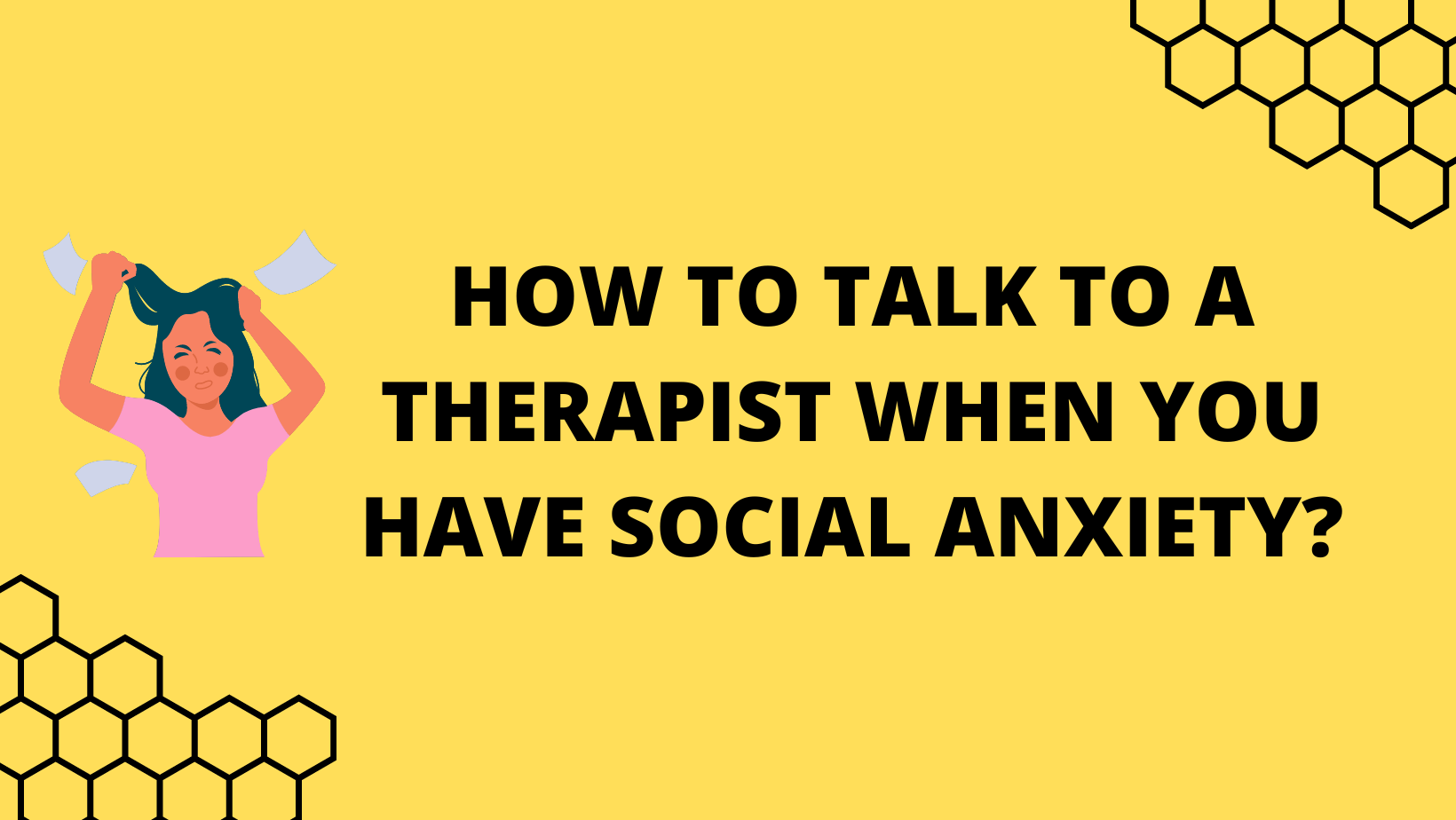
How to talk to a therapist when you have social Anxiety?
Seeking therapy is a courageous step towards addressing social anxiety, a common mental health concern. However, the thought of talking to a therapist can be daunting, especially when you have social anxiety. Fortunately, there are strategies you can employ to effectively communicate with your therapist and make the most of your therapy sessions. In this article, we will explore practical tips to help you navigate therapy when you have social anxiety.
Choose a Therapist who Specializes in Anxiety: When selecting a therapist, it is essential to find someone experienced in treating anxiety disorders, including social anxiety. Look for therapists who have expertise in cognitive-behavioral therapy (CBT) or exposure therapy, as these approaches are often effective in treating social anxiety. A therapist who understands your specific challenges will be better equipped to provide tailored support and create a safe environment for your therapy sessions.
Communicate Your Concerns in Advance: Before your first session, communicate your social anxiety-related concerns to your therapist. You can do this through an email or a phone call, sharing your specific fears or worries about talking openly. This preemptive communication allows your therapist to be more understanding and accommodating, making necessary adjustments to create a comfortable and supportive therapeutic environment.
Set Realistic Goals: Discuss your goals for therapy with your therapist. Be clear about what you hope to achieve and what areas of your social anxiety you would like to address. Setting realistic expectations will help guide your therapy sessions and allow you to track your progress effectively. Your therapist can then tailor the treatment plan accordingly and provide you with strategies to manage specific situations that trigger your social anxiety.
Take It at Your Own Pace: Remember that therapy is a journey, and progress takes time. If you feel overwhelmed or anxious during your sessions, communicate this to your therapist. Together, you can establish a pace that feels comfortable for you. Your therapist can help you gradually expose yourself to anxiety-provoking situations, ensuring you feel supported throughout the process. Open and honest communication about your comfort levels is crucial for successful therapy outcomes.
Use Written Communication Tools: If speaking in therapy feels challenging, consider using written communication tools as a supplement. You can write down your thoughts, concerns, or questions in advance and share them with your therapist. Some therapists even offer secure messaging platforms or journaling exercises as part of the therapeutic process. These written exchanges can help you express yourself more comfortable and provide a starting point for deeper discussions during your sessions.
Practice Mindfulness and Relaxation Techniques: Before and during your therapy sessions, practice mindfulness and relaxation techniques to manage your anxiety. Deep breathing exercises, progressive muscle relaxation, or guided meditation can help calm your nerves and ground yourself. These techniques can be used as coping mechanisms during therapy to alleviate anxiety symptoms and enhance your ability to communicate effectively.
Celebrate Progress: Acknowledge and celebrate your progress, no matter how small it may seem. Remember that therapy is a gradual process, and each step forward is a significant achievement. Share your successes with your therapist and reflect on the positive changes you have experienced. Recognizing your progress can boost your confidence and motivate you to continue working towards managing your social anxiety.
Conclusion: Talking to a therapist when you have social anxiety may initially feel challenging, but with the right strategies, you can effectively communicate and make significant progress in therapy. Choose a therapist experienced in treating anxiety, communicate your concerns, set realistic goals, and take the process at your own pace. Utilize written communication tools and practice mindfulness techniques to manage anxiety symptoms. Most importantly, celebrate your progress along the way. Consult to the best psychiatrist in Jaipur, Dr. Kapil Sharma. With consistent effort and support, therapy can be a transformative journey towards overcoming social anxiety and living a more fulfilling life.

